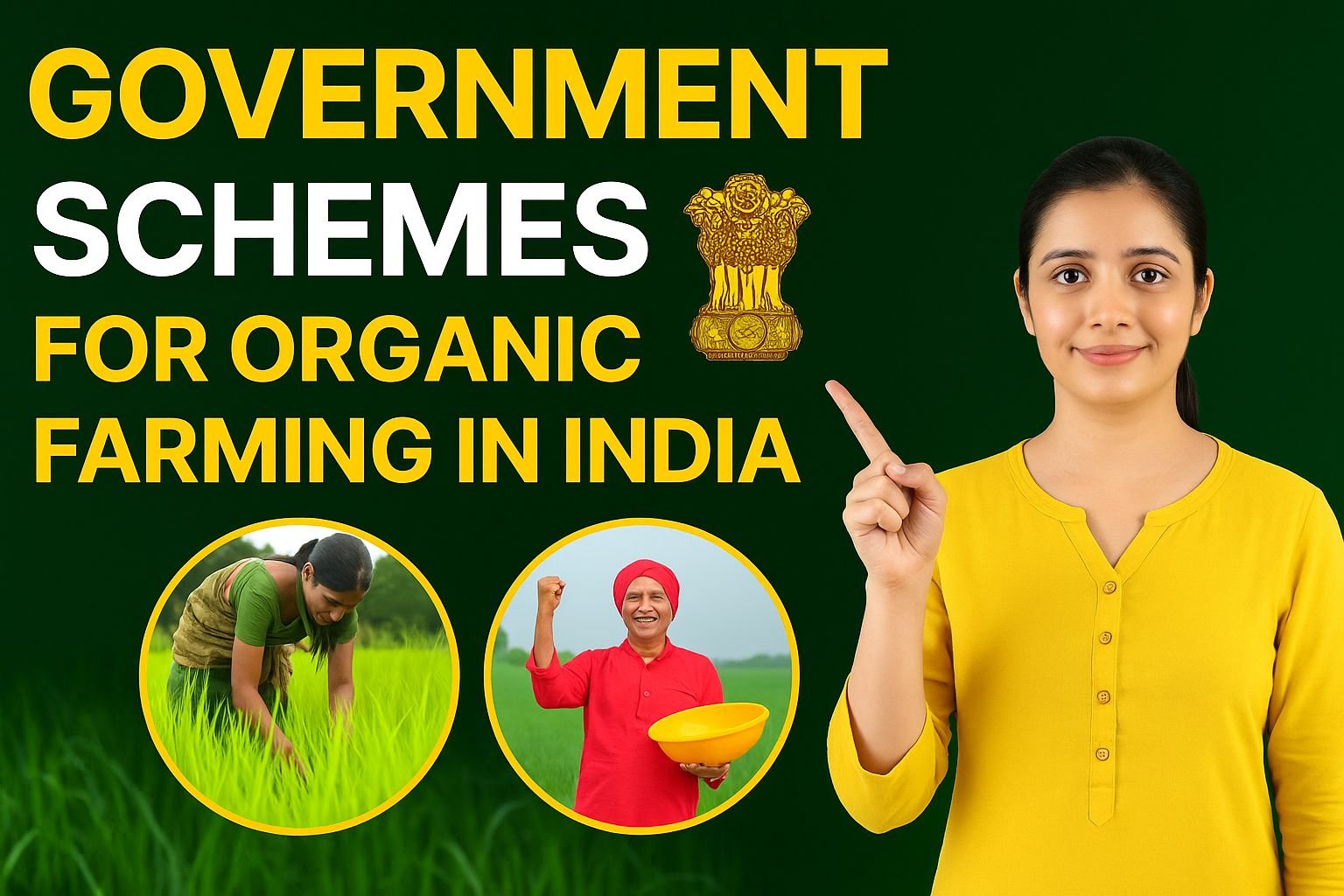
- Ecolandmark
- 05 May 2025
- Government Policies & Subsidies
"Government Schemes & Subsidies for Organic Farming: A Complete Guide for Farmers"
Government Policies and Subsidies for Organic Farming: A Boost for Sustainable Agriculture
Organic farming is more than just a way to grow crops; it's a movement that prioritizes health, the environment, and sustainability. In order to encourage farmers in India to adopt organic farming methods, the government is implementing a number of policies and providing subsidies. These initiatives help farmers access the tools, knowledge, and financial support they need to adopt sustainable agricultural methods. Let’s dive into the key government policies and subsidy schemes that are empowering organic farmers.
1. Sustainable Agriculture National Mission (NMSA) The National Mission on Sustainable Agriculture (NMSA) aims to promote sustainable agricultural practices that reduce environmental damage while enhancing productivity. It focuses on improving soil health, water-use efficiency, and increasing organic farming practices.
Key Features: Financial Assistance: Provides funding for organic farming initiatives, such as the expansion of organic markets and organic inputs. Soil Health Management focuses on conserving soil and adding organic amendments to it to increase its fertility and agricultural productivity over time.
2. National Organic Production Program (NPOP) The National Programme for Organic Production (NPOP) is an essential certification program that guarantees that products meet the highest organic farming standards. It provides certification to Indian organic products, helping them reach both national and international markets.
Key Features: Reach across the globe Organic certification grants farmers access to a broader customer base and opens up export markets. Support for Farmers: NPOP helps farmers get certified, which can sometimes be expensive for small farmers.
3. PKVY, or Paramparagat Krishi Vikas Yojana, The Paramparagat Krishi Vikas Yojana (PKVY) is an initiative under the Pradhan Mantri Krishi Sinchayee Yojana (PMKSY). Subsidies and training are provided to encourage organic farming on conventional agricultural land. Key Features:
Subsidy for Conversion: Farmers receive financial assistance to switch to organic farming on their farms. This includes paying for certification and organic inputs. Awareness and Training: PKVY also offers farmers training programs to teach them about organic farming methods.
4. Soil Health Management Subsidy
The government recognizes the significance of soil health for organic farming. The Soil Health Management (SHM) subsidy supports the use of organic fertilizers, bio-pesticides, and soil testing kits, all crucial for maintaining soil quality.
Key Features: Subsidies for Organic Products: Organic fertilizers and other environmentally friendly farming solutions can get subsidies from the government. Soil Testing: Financial assistance is provided for soil testing to help farmers understand the nutritional needs of their land and apply the right organic amendments.
5. Subsidy for Organic Certification The process of getting certified as an organic farm can be expensive, but it’s a critical step for farmers looking to access premium markets. The NPOP's Organic Certification Subsidy helps farmers cover the costs of certification. Key Features: Subsidy of fifty percent: Farmers can receive up to fifty percent of the cost of organic certification, alleviating the financial burden of certification fees.
6. How to Apply for Subsidies
To ensure that more farmers can take advantage of the subsidies, the government has simplified the application process. You can apply for these subsidies in the following ways:
Steps to Apply:
Register under PM-KISAN: Farmers must first be registered under the Pradhan Mantri Kisan Samman Nidhi (PM-KISAN) scheme to receive subsidies.
Join Farmer Producer Organizations (FPOs): Many subsidy schemes require farmers to be part of a Farmer Producer Organization (FPO).
Submit Applications: Farmers need to submit their applications for subsidies via the local agriculture department.
Verification and Funds Transfer: Following the verification of the application, the funds are immediately deposited into the farmer's account, enabling them to begin their transition and purchase organic inputs.
7. The Advantages of Government Assistance for Organic Farmers Farmers benefit greatly from the government's support for organic farming: Increased Income: With subsidies and certification, farmers can access higher-value markets for their organic produce.
Sustainability: These plans reduce the use of chemical fertilizers and pesticides and promote organic practices, ensuring the long-term health of the soil. Access to the World's Market Organic certification makes it possible for farmers to export their goods to other countries, thereby increasing their income potential. Sustainable: Organic farming conserves water, reduces soil erosion, and supports biodiversity.
8. Future Challenges and Opportunities While government policies and subsidies have made organic farming more accessible, there are still challenges that farmers face, such as:
Gap in Awareness: A lot of farmers are still unaware of the policies and subsidies that are available to them. Initial Costs: Transitioning to organic farming can be expensive due to the cost of certification, inputs, and training.
Market Access: Many farmers still struggle to gain access to markets where they can sell their produce at a premium price despite the growing demand for organic goods. However, these challenges also present opportunities for further innovation and support from both the government and private sectors.
Conclusion
The government of India is playing a vital role in promoting organic farming through various policies, schemes, and subsidies. These initiatives not only help farmers transition to more sustainable agricultural practices but also open up new economic opportunities for them. It's a good idea to stay up to date on the most recent policies and subsidy programs that can help you switch to organic farming if you're a farmer. Steps to Take: If you found this blog helpful, don’t forget to share it with fellow farmers. Subscribe to our newsletter to receive additional updates on government policies and organic farming!




